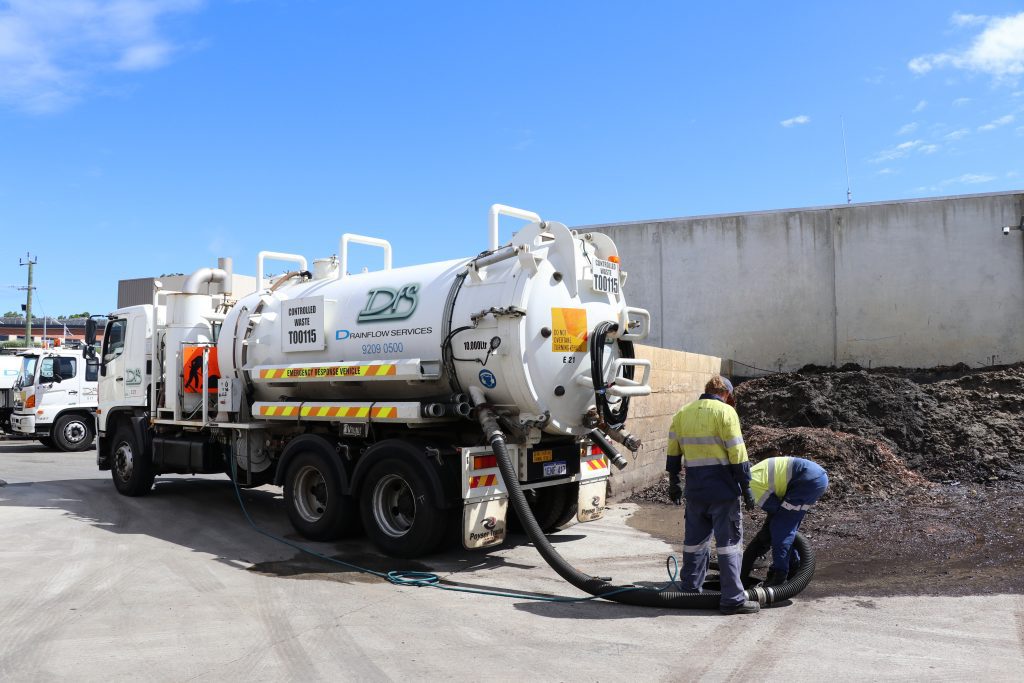Facts About Reclaim Waste Revealed
Facts About Reclaim Waste Revealed
Blog Article
The Main Principles Of Reclaim Waste
Table of ContentsThe 20-Second Trick For Reclaim WasteUnknown Facts About Reclaim WasteThe Main Principles Of Reclaim Waste An Unbiased View of Reclaim WasteReclaim Waste - Truths
Domestic sewage waste refers to the waste and items from a residential septic storage tank. The correct administration and disposal of residential sewer waste require fluid waste to be moved to a sewage treatment plant where the correct methods and devices are used to purify and dispose of waste.
Industrial waste often includes prospective threats, such as flammable materials or a blend of fluid and solid waste products, and calls for a more sophisticated and thorough disposal process. The disposal of industrial waste typically involves the filtering of waste prior to transport to make certain secure and proper disposal. Industrial waste is produced from results and runoff of industrial procedures and manufacturing.
This kind of waste can not utilize the same sewer monitoring transportation or processes as septic or commercial fluids. The hazardous waste monitoring procedure calls for the inspection and testing of liquid waste before it undergoes the disposal process (industrial wastewater treatment). Runoff waste is the fluid waste that originates from drainage and excess stormwater in very booming locations or cities
Drainage waste can create contamination and flooding otherwise dealt with appropriately. Find out more concerning drain cleaning and waste administration. Making sure proper waste management can prevent calamities and lower ecological damage. Both individuals in domestic settings and specialists in business or production industries can gain from comprehending the processes and regulations of fluid waste monitoring.
The 9-Second Trick For Reclaim Waste
Contact PROS Solutions today to discover our waste monitoring and disposal services and the appropriate ways to look after the liquid waste you generate.
(https://zenwriting.net/reclaimwaste1/innovative-industrial-wastewater-treatment-solutions-by-reclaim-waste)Do you recognize what takes place to your water when you disengage, purge the toilet or drain pipes the washing maker? No? Well, it deserves knowing. This supposed 'wastewater' is not only a vital source but, after therapy, will be released to our land, waterways or the sea. Utilized water from toilets, showers, baths, kitchen sinks, laundries and commercial processes is called wastewater.

water made use of to cool equipment or clean plant and tools). Stormwater, a type of wastewater, is runoff that moves from agricultural and urban locations such as roofing systems, parks, yards, roadways, paths and seamless gutters into stormwater drains pipes, after rainfall. Stormwater streams without treatment directly to regional creeks or rivers, eventually getting to the ocean.
Some Known Facts About Reclaim Waste.
In Queensland, a lot of wastewater is treated at sewage treatment plants. Wastewater is delivered from residential or industrial sites through a system of sewers and pump terminals, recognized as sewerage reticulation, to a sewage therapy plant.
The Division of Natural Resources encourages regional governments about handling, index operating and keeping sewerage systems and treatment plants. In unsewered locations, city governments may require householders to mount specific or family sewage treatment systems to deal with residential wastewater from bathrooms, kitchen areas, shower rooms and washings. The Department of Natural Resources authorises making use of home systems when they are shown to be efficient.
A lot of stormwater obtains no therapy. In some new neighborhoods, treatment of some stormwater to remove clutter, sand and crushed rock has started making use of gross toxin traps. Wastewater therapy takes place in 4 phases: Eliminates solid issue. Bigger solids, such as plastics and other objects wrongly discharged to sewage systems, are removed when wastewater is passed via screens.
Wastewater then streams right into large containers where solids work out and are gotten rid of as sludge. Grease and scum are skimmed from the surface area. Uses small living microorganisms referred to as micro-organisms to damage down and eliminate remaining liquified wastes and great bits. Micro-organisms and wastes are included in the sludge. Gets rid of nitrogen and phosphorus nutrients that might trigger algal blooms in our rivers and endanger aquatic life.
Some Known Details About Reclaim Waste
Nutrient elimination is not offered at all sewage treatment plants because it calls for pricey specialized tools. Clear fluid effluent created after treatment may still contain disease-causing micro-organisms - industrial wastewater treatment.

This usually indicates wastewater has to be dealt with or contaminants gotten rid of before it can be discharged to rivers. The majority of wastewater streams into the sewage system. Under the Act, regional governments administer authorizations and licences for environmentally pertinent activities (ERAs) entailing wastewater releases that might have a neighborhood effect. The department carries out approvals and permits to Ages involving wastewater launches that may have a regional or statewide influence.
An Unbiased View of Reclaim Waste
Or else, samples are considered laboratory evaluation. Typically several tests are required to develop the levels of each of the various toxins such as oils, heavy metals and chemicals in water. Surveillance offers valid details regarding water top quality and can validate that permit problems are being met. The information obtained with tracking supplies the basis for making water high quality choices.
Report this page